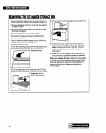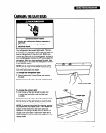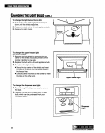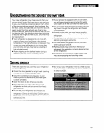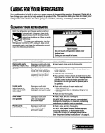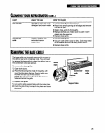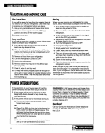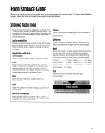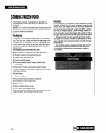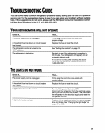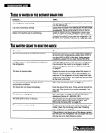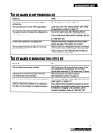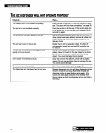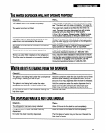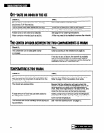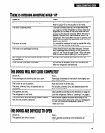
The freezer section is designed for storage of
commercially frozen food and for freezing food
at home.
NOTE: For further information about preparing food
for freezing or food storage times, check a freezer
guide or reliable cookbook.
Packaging
The secret of successful freezing is in the packag-
ing. The way you close and seal the package must
not allow air or moisture in or out. Packaging done
in any other way could cause food odor and taste
transfer throughout the refrigerator and drying of
frozen food.
Packaging recommended for use:
0 Rigid plastic containers with tight-fitting lids
0 Straight-sided canning/freezing jars
0 Heavy-duty aluminum foil
0 Plastic-coated paper
0 Non-permeable plastic wraps (made from
Saran film)
0 Specified Freezer self-sealing plastic bags
Follow package or container instructions for proper
freezing methods.
Do not use:
0 Bread wrappers
0 Non-polyethylene plastic containers
0 Containers without tight lids
0 Wax paper
0 Wax-coated freezer wrap
0 Thin, semi-permeable wrap
The use of these wrappings cnuld cause food odor,
taste transfer, and drying of frozen food.
Ffeezinp
Do not expect your freezer to quick-freeze any large
quantity of food. Put no more unfrozen food into the
freezer than will freeze within 24 hours (no more than
two to three Ibs of food per cubic foot [907-l ,350 g
per liter] of freezer space). Leave enough space for
air to circulate around packages. Be careful to leave
enough room at the front so the door can close tightly.
Storage times will vary according to the quality
and type of the food, the type of packaging or wrap
used, (airtight and moisture-proof), and the storage
temperature.
Ice crystals inside a sealed package are normal.
This simply means that moisture in the food and
air inside the package has condensed, creating
ice crystals.
STORING FROZEN FOOD
28
WITH QUESTIONS OR COMMENTS



